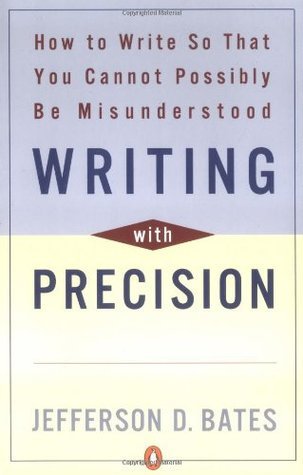Writing with Precision is a practical manual for writers. It offers specific ‘ways’ to be clear; so many with such depth, that one must practice them to understand. It’s good that the book includes a few practical exercises.
The first edition was published in 1978 and Jefferson Bates, a former NASA writer of some renown, lays out what he learned over four decades as a professional writer. He spends his time on government writing and covers letters, memos, instructions, regulations, and reports with the aim to be precise. While some may think this is too narrow for those writing blogs or articles, it gives those of us in government service something to ponder. Specifically, what have we learned about writing this isn’t helpful? Bates sees jargon, vogue words, and gobbledygook as a start. He was a key player in de-mystifying government writing…and I thought it was bad now.
Bates breaks Writing with Precision into several parts which cover a variety of topics. Part 1 focuses on writing with 10 principles and 7 axioms. Part 2 covers editing skills while Part 3 is a handbook organized in alphabetical order that complements Part 1. Lastly, Part 4 is a series of practical exercises with the authors solutions and comments. Throughout, he adds checklists and exercises to drive home his points.
Overall, a worthy read. My two biggest take-aways were a new method for building an outline using index cards and the reasons you SHOULD use passive voice. This will go on my reference shelf. It is a great tool to come back to as you edit your own (or someone else’s) work.

